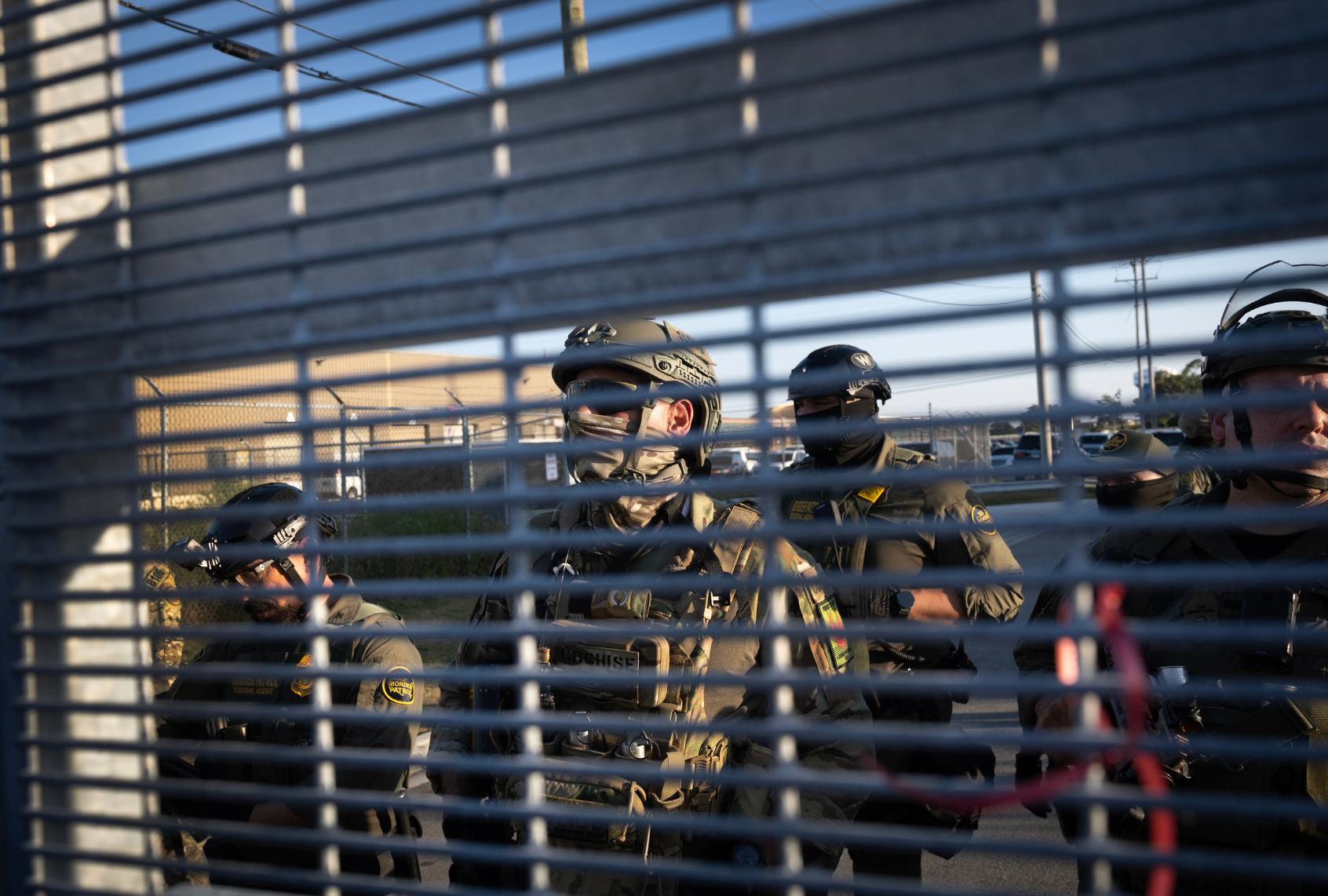World
Chicago Residents Mobilize Against Federal Law Enforcement Actions

Chicago is witnessing increased federal law enforcement presence as part of the Trump administration’s initiative to combat crime, prompting local leaders to call for community action. In response to armed federal agents patrolling the city, Illinois Governor JB Pritzker has urged residents to document these enforcement actions and advocate for their neighbors. “What I have been warning of is now being realized,” he stated during a press conference on March 22, 2024. “None of what Trump is doing is making Chicago any safer.”
The administration’s plan includes deploying at least 100 federal agents to Illinois, following a weekend that saw numerous federal personnel conducting operations across Chicago. Pritzker encouraged citizens to use their cell phones to record interactions with federal agents, share their experiences on social media, and seek identification from law enforcement officials. “We need to let the world know this is happening — and that we won’t stand for it,” he added.
Local activists and community organizations are mobilizing in response to these federal actions. The Trump administration has been criticized for escalating its enforcement tactics, with this latest operation seen as part of a broader strategy to intimidate immigrant communities. Pritzker emphasized that the actions are not primarily about enhancing public safety but are designed to instill fear and division among residents.
On March 20, 2024, federal agents were reported to be targeting street vendors and construction workers, leading to detentions of local residents. This development follows similar operations in other cities, including a federal takeover in Washington, D.C., and the deployment of National Guard troops in Los Angeles earlier this summer. Pritzker condemned these actions, stating, “This is about creating a pretext to send armed military troops to our communities.”
In light of the increased tensions, community organizations such as Organized Communities Against Deportations Chicago have stepped up their efforts to support affected individuals. Antonio Gutierrez, the strategic coordinator for the organization, noted a significant rise in calls to their hotline, which provides resources and legal assistance to those impacted by federal enforcement. The hotline has received between 200 and 400 calls per day, in stark contrast to the one to five calls per month received in previous years.
Gutierrez remarked on the disturbing nature of the recent federal actions. “We were getting a lot of calls when they were doing their PR stunt in downtown Chicago,” he stated, indicating that the organization has also observed signs of racial profiling during these operations.
Federal agents have acknowledged their reliance on racial profiling, as highlighted by Gregory Bovino, commander at large of the U.S. Border Patrol. In an interview with local media, he admitted that arrests can be influenced by an individual’s appearance, saying, “It would be agent experience, intelligence that indicates there’s illegal aliens in a particular place… Then, obviously, the particular characteristics of an individual, how they look.”
In response to these developments, local progressive groups, including the Indivisible Coalition of Chicago, are mobilizing residents to document federal presence in their neighborhoods and offer support to community members. Kathy Tholin, board chair for the coalition, emphasized the importance of community engagement and mutual aid efforts to assist families affected by detentions.
Additionally, the Chicago Teacher’s Union is actively involved in safeguarding students from immigration enforcement. Stacy Davis Gates, president of the union, shared that members are working to protect students by escorting them to and from school and participating in rights training sessions. “What we are finding here in Chicago… is a level of intimidation that is unsustainable and, quite frankly, that’s scary to the children we have in our communities,” Davis Gates noted.
The situation in Chicago reflects broader national debates about immigration enforcement and its implications for local communities. As federal actions continue to escalate, local leaders and residents are determined to resist what they view as intimidation tactics that threaten the safety and well-being of their neighborhoods.
-

 Lifestyle5 months ago
Lifestyle5 months agoLibraries Challenge Rising E-Book Costs Amid Growing Demand
-

 Sports4 months ago
Sports4 months agoTyreek Hill Responds to Tua Tagovailoa’s Comments on Team Dynamics
-

 Sports4 months ago
Sports4 months agoLiverpool Secures Agreement to Sign Young Striker Will Wright
-

 Lifestyle4 months ago
Lifestyle4 months agoSave Your Split Tomatoes: Expert Tips for Gardeners
-

 Lifestyle4 months ago
Lifestyle4 months agoPrincess Beatrice’s Daughter Athena Joins Siblings at London Parade
-

 Science4 months ago
Science4 months agoSan Francisco Hosts Unique Contest to Identify “Performative Males”
-

 World4 months ago
World4 months agoWinter Storms Lash New South Wales with Snow, Flood Risks
-

 Science5 months ago
Science5 months agoTrump Administration Moves to Repeal Key Climate Regulation
-

 Business5 months ago
Business5 months agoSoFi Technologies Shares Slip 2% Following Insider Stock Sale
-

 Science5 months ago
Science5 months agoNew Tool Reveals Link Between Horse Coat Condition and Parasites
-

 Sports4 months ago
Sports4 months agoElon Musk Sculpture Travels From Utah to Yosemite National Park
-

 Science5 months ago
Science5 months agoNew Study Confirms Humans Transported Stonehenge Bluestones









